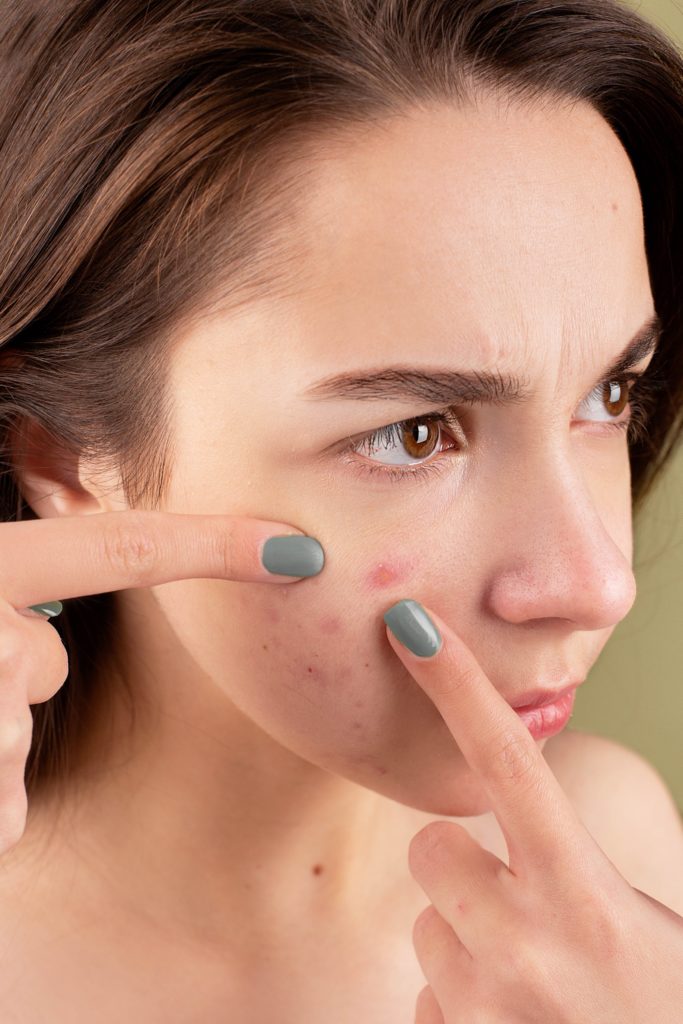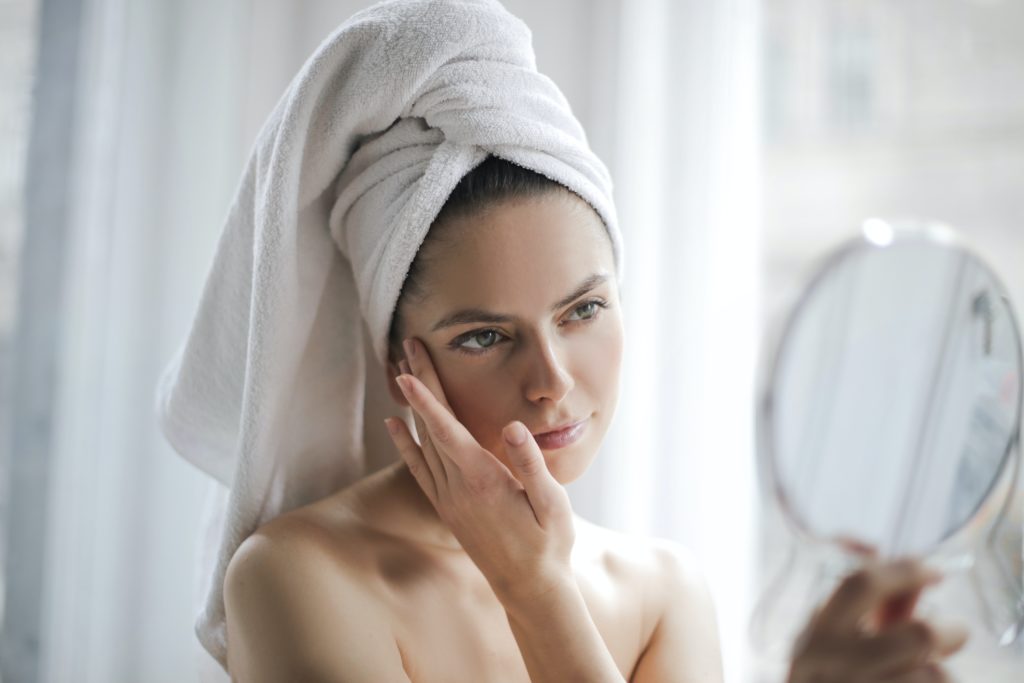Mindful Dermatology Gives Tips on How to Prevent and Treat Acne
This Acne Awareness Month, A Dallas Dermatologist Offers At-Home and In-Clinic Options
BY PC Studios // 06.20.22When it comes to treating acne, there are a few different options ranging from in-clinic treatments at Mindful Dermatology to prevention methods that can be practiced at home.
June is Acne Awareness Month, and unfortunately, for about more than 20 percent of adults, acne is not something left behind at high school graduation. Dallas-based clinic Mindful Dermatology, one of the most popular clinics in the city and leaders in aesthetic treatments, talked with PaperCity about what you need to know about acne — from its causes to effective treatments and beyond.
According to Mindful Dermatology Nurse Practitioner Melodie Young, MSN, APRN, A/GNP-C, about one-third of the clinic’s acne patients are adults. This figure is in line with what’s seen on a national scale. A study performed by the University of Alabama found that 35 percent of women and 20 percent of men reported having trouble with acne in their 30s. Additionally, 15 percent of women said they struggled with acne in their 50s.
“In some cases, what’s assumed to be common acne is actually something else, like rosacea,” Young tells PaperCity. “This is why it’s so important to visit a dermatology provider to verify what type of acne it is and if a treatment regimen needs to be established, or if there’s a simpler fix.”
Acne consists of several different types of lesions and can be located on the trunk, face, scalp, and neck. Occasionally, it can also be seen on the buttocks and thighs. The good news is that depending on the type of acne (comedones, pustules, papules, or cysts), as well as how inflamed and widespread the lesions are, Mindful Dermatology providers can recommend an individualized approach to either alleviate or eliminate the acne altogether.

So, what causes acne? What’s true, and what’s a myth?
Young says there are a wide variety of acne myths adults should be aware of, including the idea that touching the face, not changing the pillowcase, and eating junk food can cause it. The same hormones that cause food cravings typically contribute to the development of acne, not the food itself. There has been extensive research into food and acne. Although the subject is controversial, the only evidence around the correlation between food and acne might be that cow’s milk makes acne worse. Still, the benefits of dairy and calcium will likely outweigh any dietary change recommendations.
“In reality, adult acne can be attributed to two key categories: internal and external causes,” Young tells PaperCity. “When considering internal acne causes, like excess oil production and a women’s menstrual cycle, it is primarily genetic. External causes include stress, environmental conditions, bacteria, and products like makeup and skincare items.”
As for the cause of acne, there is a strong correlation to the rush of hormones that affect cell turnover and oil production for pre-teenagers and teenagers. Young says that at this time, a patient’s acne can quickly become severe, and permanent scarring is possible if not managed correctly. Picking at eruptions can damage the skin and often doubles the length of time it takes for a lesion to clear.
When it comes to treating acne, there are a few different options ranging from in-clinic treatments at Mindful Dermatology to prevention methods that can be practiced at home. It’s important to also know that skin turnover is 28 days. This turnover duration means that any lesion you have, regardless of therapy, will likely hang around for about a month, and you’ll typically see a change in your skin within eight to 12 weeks.
Although you should be visible to establish tolerability and noticeable improvement within weeks of your prescription therapies, it’s expected to take 3 to 4 skin cycles (3 months) to fully judge the results of your efforts. However, the Mindful staff are prepared to coach you through the process to not only get you clear but help you maintain your results. Young says that if you’re looking to achieve clear skin under a timeline, such as before you go to college or before you start high school, it’s a good idea to start treatment now.
One of Mindful Dermatology’s most popular treatments is isotretinoin, such as the brand Accutane. According to Young, most patients will achieve clear skin and stay clear indefinitely after four to five months of this treatment. In some cases, the clinic purposely approaches this therapy at a slower pace to make it more tolerable, as isotretinoin and other common retinoid type acne medications’ side effects are known to cause flaky skin. About 10 to 20 percent of patients may require additional courses(s) of isotretinoin over their lifetime to control what would otherwise be scarring acne.
Young says that everyone knows someone who has gone through this treatment, and although they do sometimes hear stories of how someone endured misery to clear their acne, rarely do they have anyone who wishes they had not done it since the results are so impressive. Isotretinoin can only be prescribed and managed by a dermatology provider with specific training to monitor for side effects.

For treating acne at home, non-prescription products usually include adapalene, salicylic acid or benzol peroxide which can be helpful for minor breakouts, however, there are no topical therapies or over-the-counter products that are FDA-approved or recommended for acne scars. This is why early medical intervention is so important.
Microneedling has been acknowledged as potentially helpful and is definitely worth exploring if you suffer from acne scarring.
“My advice is first to get the acne under control, then start working on the skin texture and scars,” Young tells PaperCity. “Prescription retinoids – most often called ‘Retin A’ – can also help smooth the skin and help with small marks and skin damage. You just need to find one you can tolerate and how to best use it.”
You can also help to minimize or prevent outbreaks at home with cleaning and exfoliation, diet considerations/limitations, prescriptions (such as sulfa washes, steroids, Retin-A, etc.), over-the-counter treatments such as cleansers and non-clogging moisturizers) and more.
The good news is that dermatology care is typically covered by health insurance, and Mindful Dermatology accepts most private insurances. Dermatology providers can create an individualized treatment plan that addresses one’s skin type and tone, hormone changes, and preferences for therapy. This will expedite the desired clearing and control of acne, as well as help you spend your time and money wisely.
“We know that acne at any age or stage of life,” Young tells PaperCity. “While we know that acne often affects a teen’s self-esteem, adults also experience problems with depression, anxiety, and social isolation.”
Mindful Dermatology aims to make aesthetic treatments effective, safe, and affordable for everyone. Their Dermatology Clinic offers a modern, clinical, and private setting for every need, and all their treatments and products are medically supervised.
There’s no doubt Mindful Dermatology is the place to go for all your aesthetic needs.

























_md.jpg)















